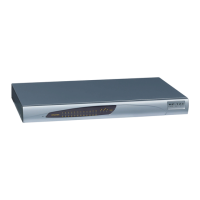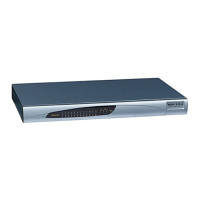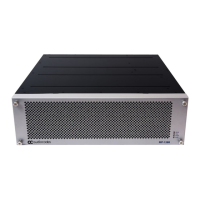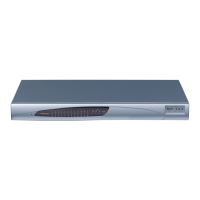RTP No-Op: The RTP No-Op support complies with IETF Internet-Draft draft-wing-
avt-rtp-noop-03 ("A No-Op Payload Format for RTP"). This IETF document defines a
No-Op payload format for RTP. The draft defines the RTP payload type as dynamic.
You can control the payload type with which the No-Op packets are sent. This is
performed using the RTPNoOpPayloadType ini parameter (see 'Networking
Parameters' on page 461). The default payload type is 120.
T.38 No-Op: T.38 No-Op packets are sent only while a T.38 session is activated. Sent
packets are a duplication of the previously sent frame (including duplication of the
sequence number).
Note: Receipt of No-Op packets is always supported.
11.9 Robust Receipt of Media Streams
The “robust-media” mechanism is an AudioCodes proprietary mechanism to filter out
unwanted media (i.e., RTP, RTCP, and T.38) streams that are sent to the same port
number on the device. In practice, the media RTP/RTCP ports may receive additional
multiple unwanted media streams as result of traces of previous calls, call control errors, or
deliberate attacks. When more than one media stream reaches the device on the same
port number, the “robust-media” mechanism detects the valid media stream and ignores
the rest.
11.10 Multiple Routers Support
Multiple routers support is designed to assist the device when it operates in a multiple
routers network. The device learns the network topology by responding to Internet Control
Message Protocol (ICMP) redirections and caches them as routing rules (with expiration
time).
When a set of routers operating within the same subnet serve as devices to that network
and intercommunicate using a dynamic routing protocol, the routers can determine the
shortest path to a certain destination and signal the remote host the existence of the better
route. Using multiple router support, the device can utilize these router messages to
change its next hop and establish the best path.
Note:
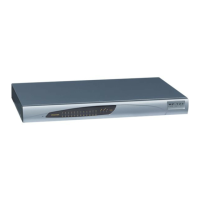
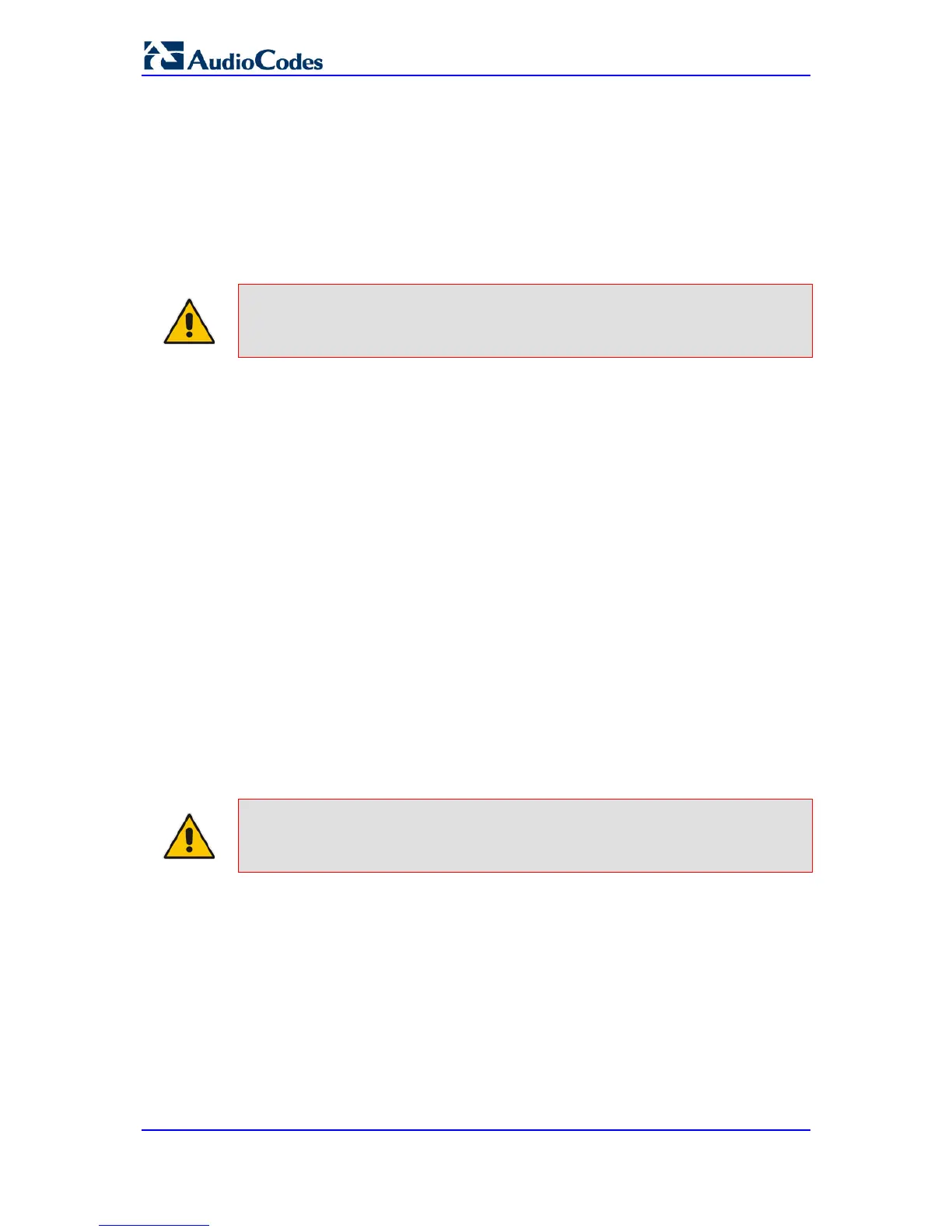